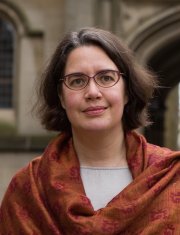
In their colloquial scientific publications, Jane Goodall, Dian Fossey, and Biruté Galdikas came to exemplify a spiritual-epistemological connection that real women could potentially establish with wild communities of animals: chimpanzees, gorillas, and orangutans, respectively.
In their publications and activism, these women drew upon images of a naturalized environmental grace to push for conservationist politics in Africa and Southeast Asia. Religious imagery both aided and redirected their scientific work.
The ecofeminist literature of the 1980s reinforced the possibility of a naturalized grace as a path to truth for women, which at once empowered their capacity to speak on behalf of the animals they studied, and simultaneously undercut their authority as scientists. As a result, Goodall, Fossey, and Galdikas have each come to be seen as powerful oracles decrying the loss of natural habitat and global trade in animal products that places wild chimpanzees, gorillas, and orangutans at risk of extinction.
Guest speaker Erika Milam specializes in the history of the modern life sciences, especially evolutionary theory. Her research explores how scientists have used animals as models for understanding human behavior, from sex to aggression.
She majored in biology at Carleton College, earned an M.S. in Biology (Ecology, Evolution, and Organismal Biology) from the University of Michigan, and completed her Ph.D. at the University of Wisconsin in the History of Science. After a postdoctoral fellowship at the Max Planck Institute for the History of Science, in Berlin, Germany, she taught at the University of Maryland for several years before joining the Princeton History Department in 2012.
Dr. Milam is author of Creatures of Cain: The Hunt for Human Nature in Cold War America and Looking for a Few Good Males: Female Choice in Evolutionary Biology.
Sponsored by the Reilly Center for Science, Technology, and Values. Reception to follow.